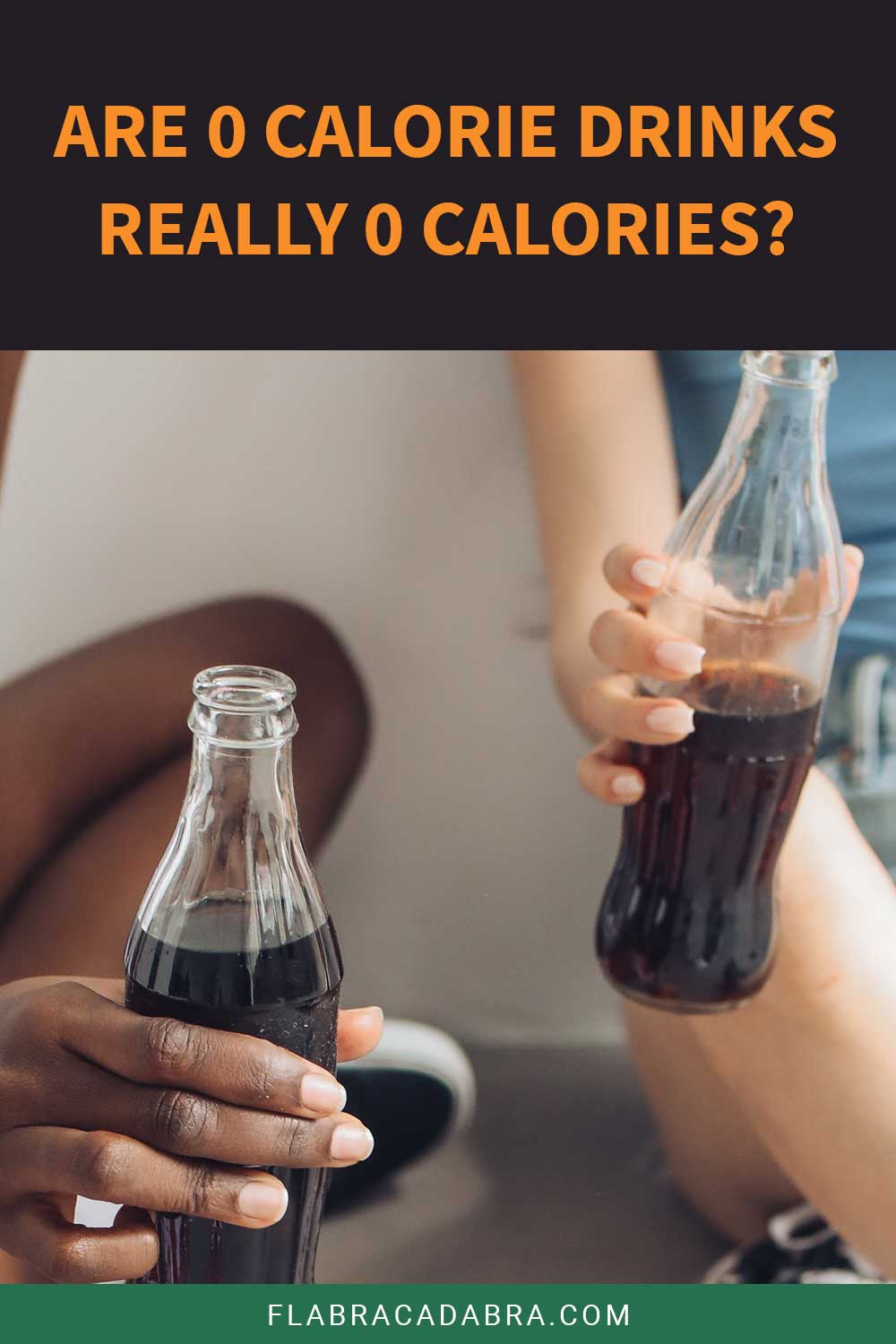When you’re looking to lose weight, oftentimes, you focus on calorie counts. Weight naturally comes from the calories consumed by your body.
That means that if you can find things that have no calories, they are often what you turn to when you need a little sustenance without damaging your calorie count for the day.
One of those treats that most people turn to is zero-calorie drinks. But can something be 0 calories? Except for water, nothing is 0 calories. These drinks can be labeled that because they have less than five calories in them.
That’s probably pretty upsetting for those that have turned to zero-calorie drinks like diet soda to get a little of their sweet treats in and not feel like they’re blowing their calories on empty energies.
So to assuage concerns and have you understand what goes on when you are choosing 0-calorie drinks, we thought we would look at some of the most pertinent facts.
Are 0 Calories Even Possible?
It would be ideal for anyone trying to lose weight to find a whole array of foods and beverages that have no calories. But the truth is that no matter how hard you try, everything except water has calories.
Even with foods and zero-calorie drinks being labeled calorie-free, you might be surprised to know that they are actually not zero-calorie. In fact, most items are allowed to be labeled 0 calories as long as they have less than five calories present.
This might not seem like a big deal, but if you are a serious calorie counter, then being misled like this could lead to you not being successful.
What is Used Instead of Sugar?
Oftentimes sugar is the main culprit when it comes to calories in beverages and foods. So in order to cut calories, many zero-calorie drinks utilize sugar substitutes. One of the most popular of those sugar substitutes used in these beverages is aspartame.
This sugar substitute is used as a replacement in tons of different products to help reduce or lower the sugar. But there are other substitutes that zero-calorie drinks use, and they include:
- Saccharin
- Sucralose
- Acesulfame K
How Do They Get the Color?
It must look the same when it comes to making you feel like you are enjoying what everybody else is enjoying. So to allow you to enjoy just that, the companies utilize “caramel color.” But what exactly is “caramel color”?
This substance is not what most people think of when they think of caramel. Caramel is a sweet that is created by cooking sugar until it turns brown. But the caramel color that comes in many zero-calorie drinks is not that at all.
The companies that create these zero-calorie drinks, when utilizing the caramel color of a diet soda, take carbohydrates and cook them up with ammonia-based chemicals. This creates a dark and sweet color compound That gives these drinks their dark color.
Is It Healthy to Drink It Often?
The truth is these drinks have not been proven to be healthy or unhealthy. Zero-calorie drinks have less than five calories, which alone makes them healthier than other options you can choose to drink.
However, in many of these zero-calorie drinks, some of the processes used to create them can leave some unhealthy compounds.
Video sky, there have been studies that show long-term use of 0-calorie drinks like diet soda could contribute to health conditions like type 2 diabetes.
But none of them is 100%, so you can rest easy. However, like with anything, too much of something can be a bad thing, so it might be suggestible to limit your intake of these drinks.
Are There Any Dangerous Ingredients?
Many people speak out about the ingredients and unhealthy Ness of the zero calorie drinks. However, the truth is some ingredients really are dangerous for many people when utilized over a long period.
Some of these are:
- Artificial sweeteners. The last thing you want to do is drink a 0-calorie drink that tastes bitter. So in order to make them sweet, the manufacturers add things like saccharin or aspartame.
Studies show these types of artificial sweeteners affect insulin levels and, therefore, could affect those with diabetes. On top of this, it has been shown that they heighten hunger cravings.
- Artificial colors. Artificial colors are used to get a cola-like look or those bright colors of 0-calorie sports drinks. Some studies show these artificial dyes affect ADHD, asthma, and other health issues.
- Artificial flavors. These manufactured ingredients were also shown to be harmful over long-term use. Though none of the studies are definite, there have been some now the geniuses of problems that arise in animals when tested on them.
Final Thoughts on Are 0 Calorie Drinks Really 0 Calories
Even if you’re reaching for that zero-calorie drink to quench a little bit of a thirst and a need for a sugary substance, you will be surprised that they are not actually zero calories. Each of those can contain up to 5 calories.
That means that though they are better than most, you need to account for the calories, especially if you are serious about calorie counting to lose weight.

